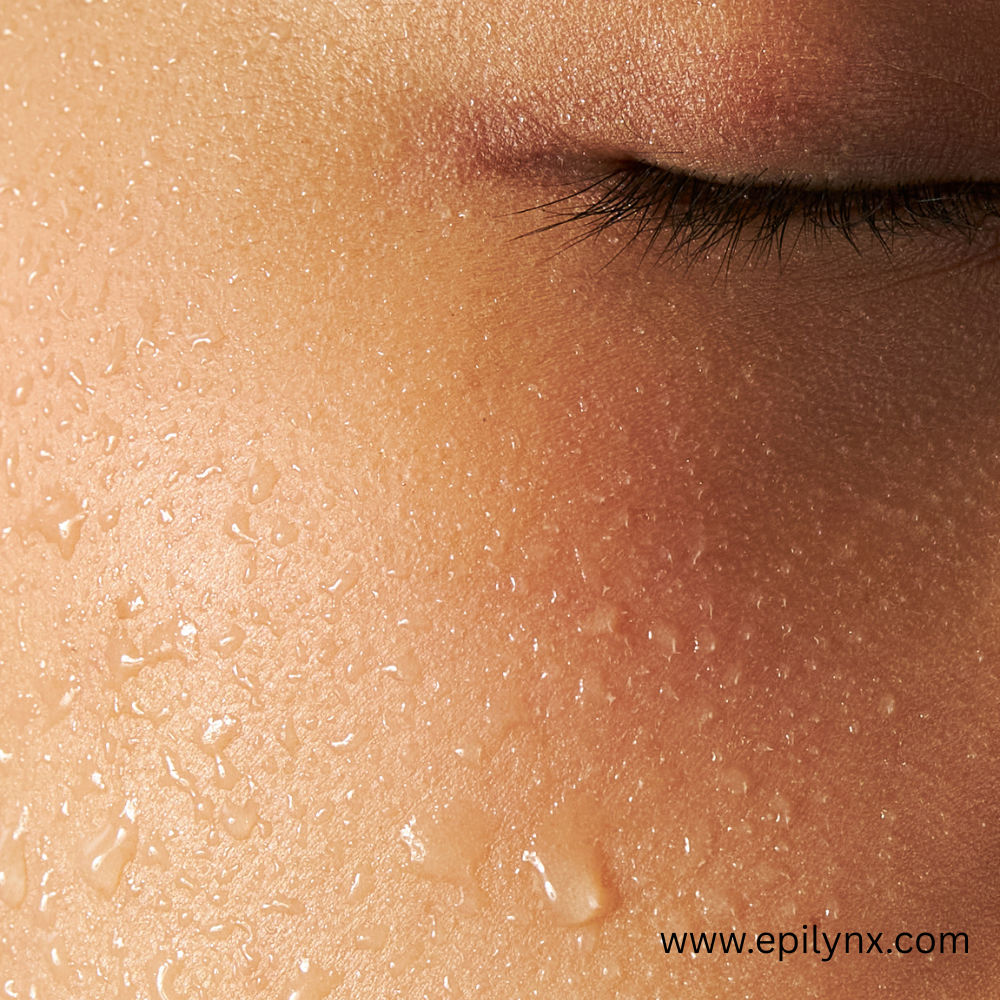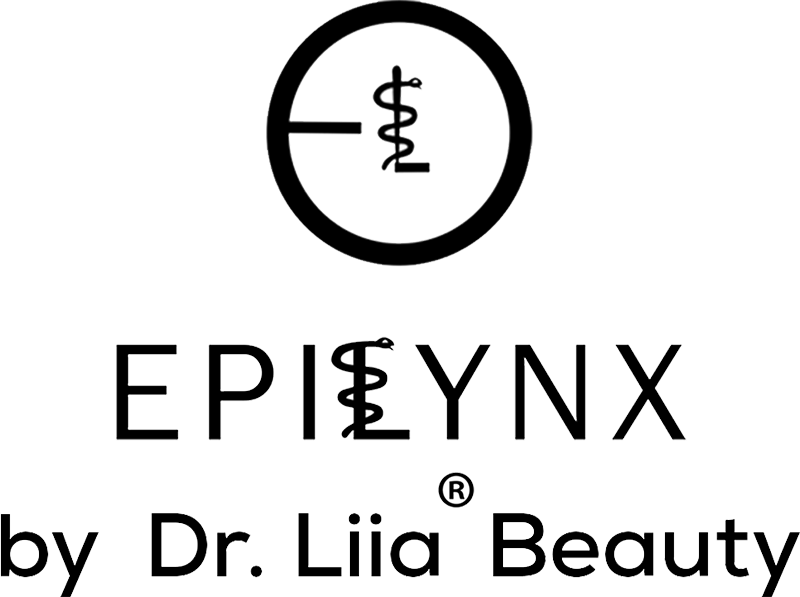
The Science of the Skin Barrier: Why It’s the Key to Calm, Healthy Skin (and How to Protect It)
Your Skin’s Most Underrated Hero 🛡️
You’ve probably heard the phrase “repair your barrier” a thousand times.
But what does that actually mean?
The truth is, your skin barrier is the unsung hero of skincare — the invisible shield that keeps the good stuff (moisture) in and the bad stuff (bacteria, allergens, pollution) out.
When it’s strong, your skin glows.
When it’s weak, your skin freaks out.
Redness. Dryness. Breakouts. Sensitivity.
All of it usually starts with a barrier problem.
Let’s explore the science of your skin’s first line of defense — and how EpiLynx’s allergen-safe, gluten-free skincare helps it heal, strengthen, and thrive.
1. What Exactly Is the Skin Barrier?
The “skin barrier” is the stratum corneum — the outermost layer of your skin.
Think of it as a brick wall:
-
Bricks = skin cells (corneocytes)
-
Mortar = natural lipids like ceramides, cholesterol, and fatty acids
When everything’s stacked properly, your barrier is watertight and resilient.
When the mortar crumbles, your skin becomes vulnerable.
📌 In short: strong barrier = calm skin. Weak barrier = chaos.
2. What Breaks the Barrier (and Why It Matters)
Modern life is basically a barrier’s worst nightmare.
Here are the top culprits that silently erode your skin’s protection:
-
Harsh cleansers with sulfates or alcohol
-
Fragrance and essential oils
-
Over-exfoliating (physical scrubs or too many acids)
-
UV exposure
-
Pollution
-
Stress and lack of sleep
-
Gluten, soy, or nut-derived allergens
-
Cold, dry climates or overuse of air conditioning
Every time your barrier gets disrupted, your skin loses hydration and lets irritants in — causing sensitivity, inflammation, and sometimes even infection.
📌 Damaged barrier = open invitation to allergens and breakouts.
3. The Signs Your Barrier Is Damaged ⚠️
If your skin feels “off,” your barrier might be waving a white flag.
Watch for:
-
Flaky, rough texture
-
Stinging when applying products
-
Tightness after cleansing
-
Sudden redness or blotches
-
Acne that doesn’t heal
-
Itchiness or burning
📌 Your skin isn’t “acting up.” It’s asking for repair.
4. Why Sensitive Skin = Compromised Barrier
Sensitive skin isn’t just a type — it’s a condition of the barrier.
When the lipid layer weakens, allergens penetrate easily, triggering inflammation and hyper-reactivity.
People with eczema, rosacea, psoriasis, or celiac disease are especially prone because their barrier is naturally thinner or more permeable.
📌 That’s why allergen-safe, gluten-free skincare isn’t a luxury — it’s a necessity.
5. The Science of Repair: What Your Barrier Actually Needs 🧬
Dermatologists agree that a healthy barrier depends on three key components:
🧱 1. Ceramides — the “cement” that keeps cells sealed
Replenish what harsh products strip away.
💧 2. Humectants (like glycerin + hyaluronic acid) — the “sponges” that pull in water
Hydration = resilience.
🪄 3. Occlusives (like squalane) — the “shield” that locks everything in
They create a breathable film that prevents water loss.
📌 Bonus: anti-inflammatory ingredients (like niacinamide or oat extract) help calm irritation while your barrier rebuilds.
6. What to Avoid While Healing Your Barrier 🚫
When your barrier is compromised, less is more.
Avoid:
-
Foaming or exfoliating cleansers
-
Retinoids or acids
-
Alcohol-based toners
-
Fragrance, essential oils, and allergens (gluten, soy, nuts)
-
“Purging” products that claim to detox your skin
📌 Simplify, soothe, and support — that’s the golden rule.
7. The Mind-Skin Connection: Stress Wrecks Your Barrier Too 🧠
Cortisol (the stress hormone) doesn’t just cause breakouts — it breaks down your barrier’s lipid layer.
That’s why high-stress periods often bring dryness, inflammation, or eczema flare-ups.
Your brain and skin are constantly talking.
When you calm one, the other follows.
📌 Self-care isn’t indulgence — it’s barrier repair from the inside out.
8. The Gluten and Allergen Factor 🌾
Many people overlook this one: allergens and gluten in skincare can physically damage the barrier over time.
When your immune system detects these proteins, it triggers an inflammatory response that weakens the skin’s structure.
For celiac or gluten-sensitive individuals, even trace contact (through lipsticks, creams, or foundations) can lead to redness, dryness, and delayed healing.
📌 Barrier repair starts with removing irritants — not adding more.
9. How to Rebuild and Strengthen Your Barrier (Step by Step) 🪞
Step 1: Cleanse gently — use a low-foam, pH-balanced, allergen-safe cleanser.
Step 2: Hydrate — apply humectants like glycerin and hyaluronic acid to pull in water.
Step 3: Seal — use ceramides, squalane, and oils free of allergens to lock in moisture.
Step 4: Protect — daily SPF to defend against UV damage.
Step 5: Be consistent — give your skin time to restore itself (usually 2–4 weeks).
📌 Healing your barrier isn’t instant—it’s a relationship built on patience and protection.
Because the foundation of beautiful skin isn’t makeup—it’s a strong, peaceful barrier.
Final Thought: Protect the Wall, Protect the Glow ✨
Your skin barrier is your silent guardian.
It works tirelessly, day and night, to keep you safe from the world.
So when it breaks, don’t punish it—protect it.
Feed it kindness, patience, and clean, allergen-safe care.
Because the stronger your barrier, the calmer your life feels — inside and out.


